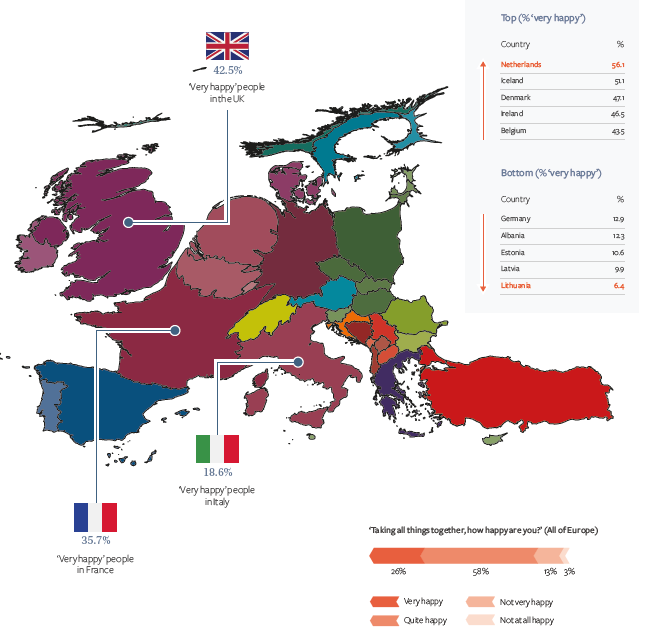The economic geography of happiness
Does geography matter when it comes to happiness? To what extent does where we live affect how we feel and why? Economic geography professor Dimitris Ballas states that these questions have not yet received the attention that they deserve in the growing body of interdisciplinary research on the determinants of subjective happiness and wellbeing.
Our happiness is not just dependent on what we have as individuals. It also depends on the happiness of others. It is therefore important to better understand the factors affecting our perception of group and place identity, feelings of affiliation and belonging and the ability to feel solidarity with other people and places. Adding a geographical dimension to the debate could involve a consideration of interdependences between people in different neighbourhoods , cities, regions and countries and expressions of solidarity, including for example the recent manifestations of support and reaching out to refugees in Europe, even from people with little material resources.
Ballas sees a great potential and need for economic geographers to get involved with research into happiness in order to examine and better understand the extent to which happiness may be attributed to individual, household, and contextual circumstances and characteristics - and the importance of these within regions and cities, for example the importance of income levels and of its distribution throughout the city. A particularly important issue is that of social and spatial inequalities in income and wealth and generally social justice and social cohesion, which can have huge implications for individual well-being and happiness of whole populations.

An important contribution that can be made by spatial scientists, and especially economic geographers, is to extensively map and analyse the economic and socio-spatial determinants of happiness and well-being. Economic geographers can play a leading role by considering and analysing the impact that social and spatial inequalities have upon happiness. Ballas has been involved in efforts on the application of multilevel modelling and spatial microsimulation methods with the combination of social survey microdata and geographical data at different scales in order to address questions such as:
- What are the factors that influence different types of individuals’ happiness?
- Is the source of happiness or unhappiness purely personal or do spatial/contextual factors matter? (and if they do, to what extent?)
- If social comparisons are important, what is the spatial scale at which people make their social comparisons?
- Do levels of happiness among individuals reflect different characteristics of residents in different districts and regions and areas (compositional effects) or whether there are environmental, geographical or other factors (e.g. amenities, social capital and cohesion, socio-economic inequality) of places that cause its inhabitants to be happy or unhappy (contextual effects). In other words, can we talk about Happy People, Happy Households or Happy Places?
More information
Dimitris Ballas is Professor of Economic Geography at the Faculty of Spatial Sciences, University of Groningen. Ballas has published widely in the fields of social and economic geography, social and spatial inequalities, regional science and Geoinformatics in the Social Sciences. His inauguration will take place at the University of Groningen on November 13 and is followed by a lecture at Studium Generale Groningen on November 14 about the impact of inequality.
More news
-
01 December 2025
The power of movement


